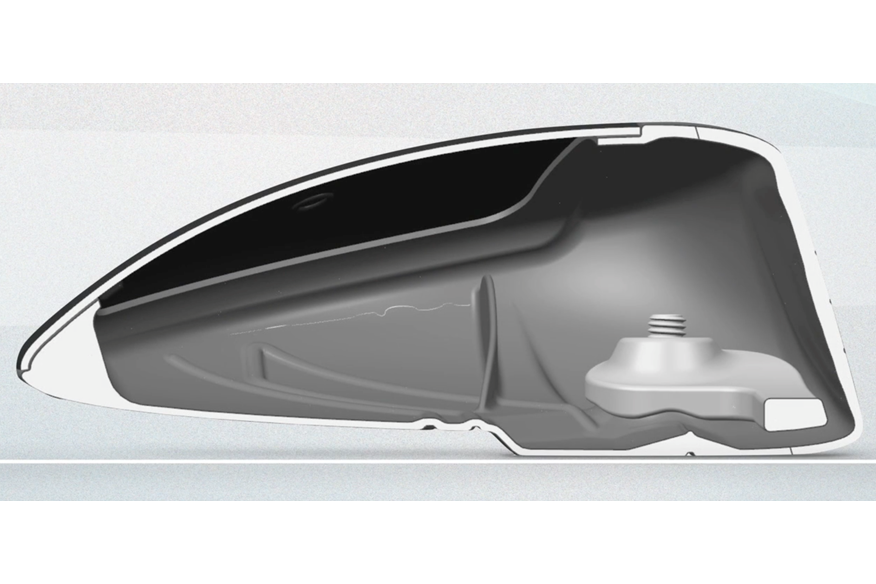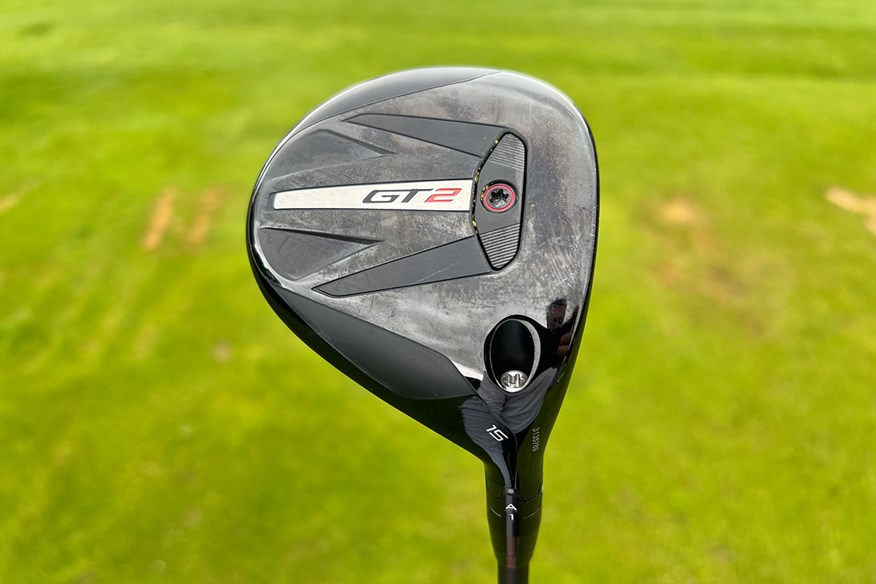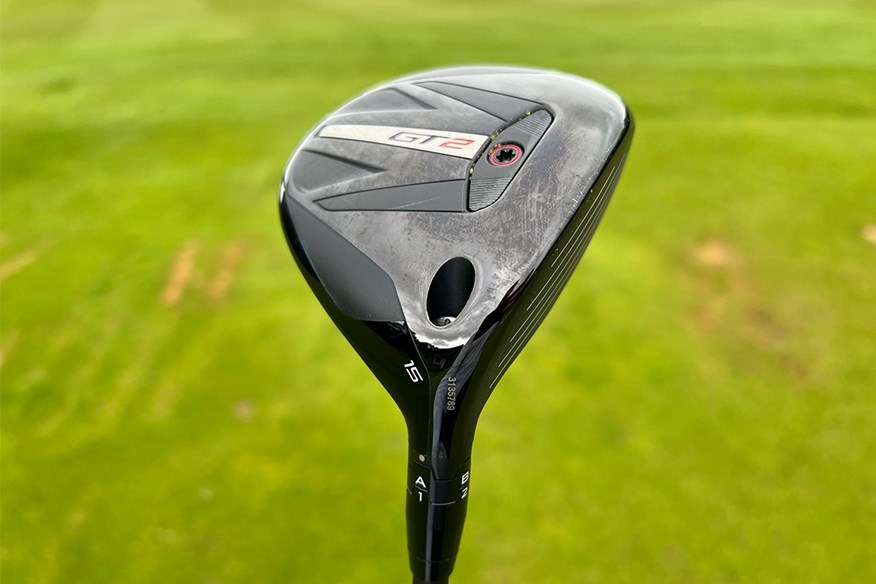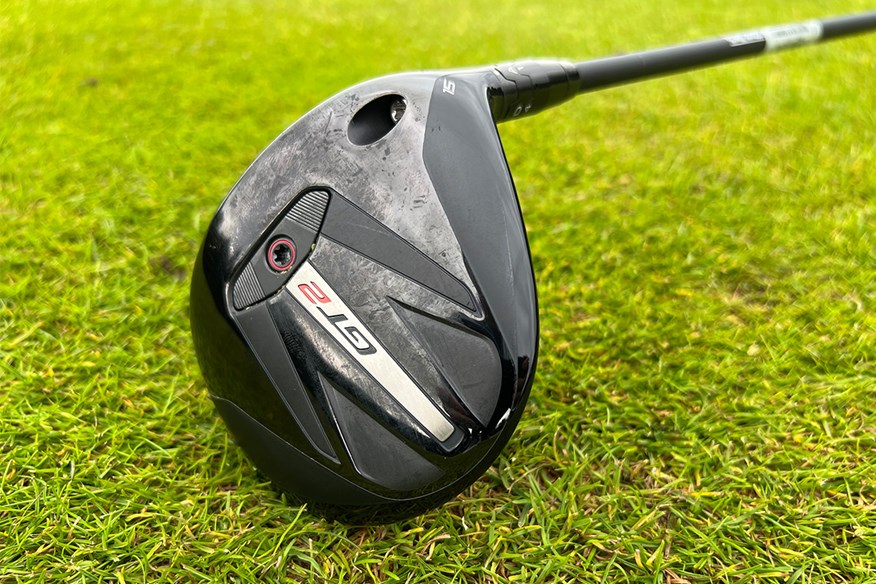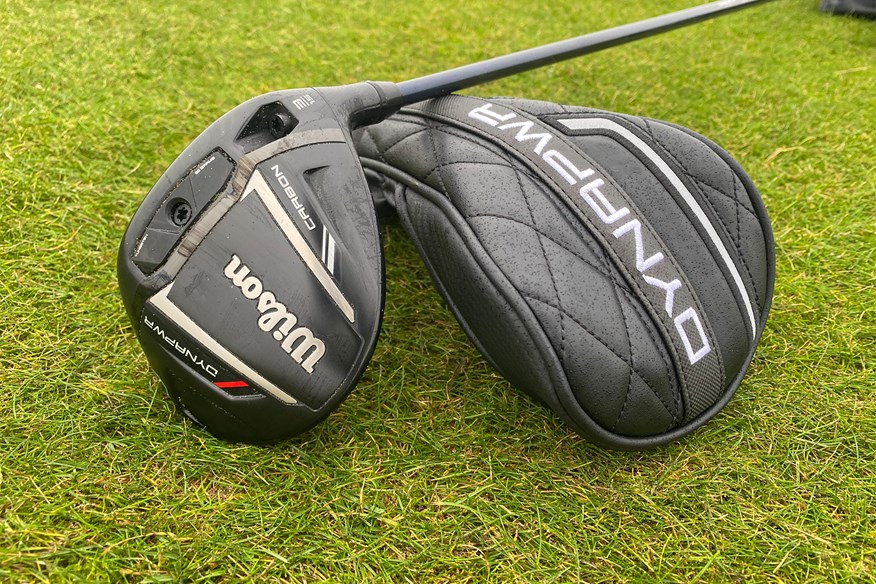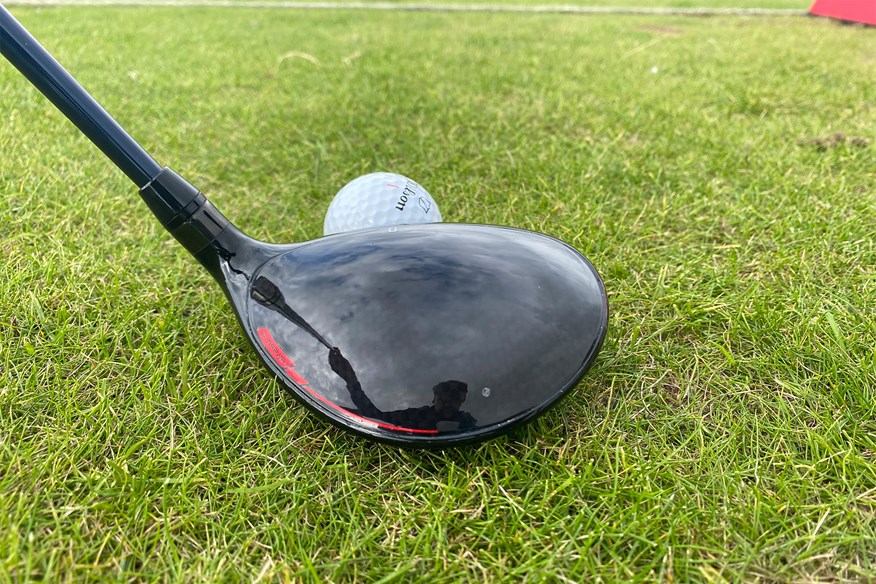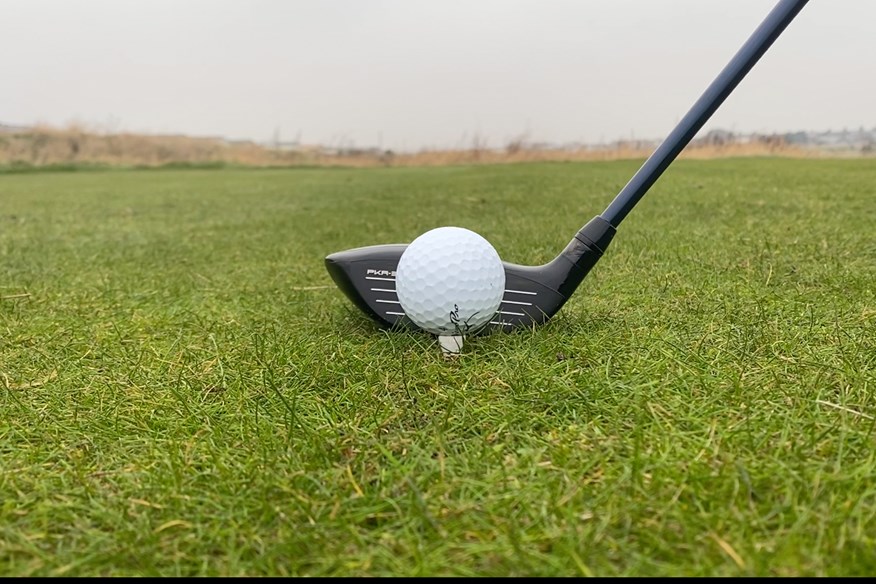Best Fairway Woods 2025: Our data-backed test reveals a surprise winner
Last updated:
At Today’s Golfer, we have rigorously tested the latest fairway woods, putting them head-to-head to identify which model best suits your game.
In 2024, the TaylorMade Qi10 Core model emerged as the best overall fairway wood, receiving widespread acclaim on tour from players like Scottie Scheffler, Rory McIlroy, and Viktor Hovland while providing fantastic performance for club golfers too. As we look toward 2025, the question is: which new fairway wood could dethrone this popular model?
Titleist’s 2025 GT fairways, for example, feature a seamless thermoform crown and a forged L-cup face, enhancing ball speed and improving the center of gravity. Meanwhile, Callaway’s Elyte fairway woods introduce a new step sole design that optimizes turf interaction for improved performance.
Other leading brands, including PING, PXG, and Cobra have also released refined models tailored to various playing styles. We’ll dive deeper into these options later in the article.
Choosing the best fairway wood can be challenging, as it is often considered the most nuanced club in the bag. In contrast to the simplicity of the driver, which typically offers one loft and one mission: finding the fairway and hitting the ball as far as possible — the fairway wood provides more flexibility, with lofts ranging from approximately 13 degrees (2-wood) to 24 degrees (9-wood). This variety allows golfers to carry multiple fairway woods, each serving a different purpose.
Lower-lofted fairway woods are typically favored by faster swinging players or those looking to replace a driver, while higher-lofted models offer more height and forgiveness, ideal for golfers who value versatility and are likely to use the club in various situations, including off the tee.
For some players, however, a fairway wood may not be necessary in the bag at all. That’s why, in addition to reading our buying guide, we highly recommend testing your options on a launch monitor to determine whether a fairway wood is beneficial for your game or if a driving iron or utility iron might better suit your needs. If you seek more height and versatility, a custom-fitted fairway wood with the correct loft can provide significant benefits. Conversely, if you play on courses that demand a more penetrating ball flight, a lower-launching fairway wood or utility iron may be the better choice.
Find out more:
- Best Golf Fairway Woods – Our Awards
- Best Overall 2025 Fairway Woods
- Best for Distance Golf Fairway Woods
- Best for Forgiveness Golf Fairway Woods
- Best for Height Golf Fairway Woods
- Best Low Launching Golf Fairway Woods
- Full Data Table
- What Our Data Means
- Golf Fairway Wood Buying Guide
- Golf Fairway Wood FAQ
Best At A Glance
Best overall fairway wood: Callaway Elyte X | Buy Now
Most forgiving fairway wood: PING G440 SFT | Buy Now
Best for distance: Callaway Elyte X | Buy Now
Best for height: Titleist GT1 | Buy Now
Best for low launch: Wilson Dynapower Carbon | Buy Now
You’ll also need to be realistic about whether you need a fairway wood that’s easy to launch off the deck, as this is a shot many mid-to-high handicap golfers struggle to hit consistently well. Luckily, continual advances in technology are making fairway woods more playable than ever, offering greater forgiveness than a long-iron alternative. We’d recommend that beginners and high-handicappers switch out as many of those clubs for fairway woods as possible, providing the lofts and gapping are correct. With many brands now offering up to an 11-wood, there have never been so many long-game options.
Our test pro has put the latest models through their paces on a launch monitor to crown our 2025 TG award-winners and help point you in the right direction. We suggest using our expert reviews in conjunction with the information found in the buying guide to hone in on the best fairway wood to take your game forward.
Best Fairway Woods 2025:
The perfect blend of distance and forgiveness
Best overall fairway wood
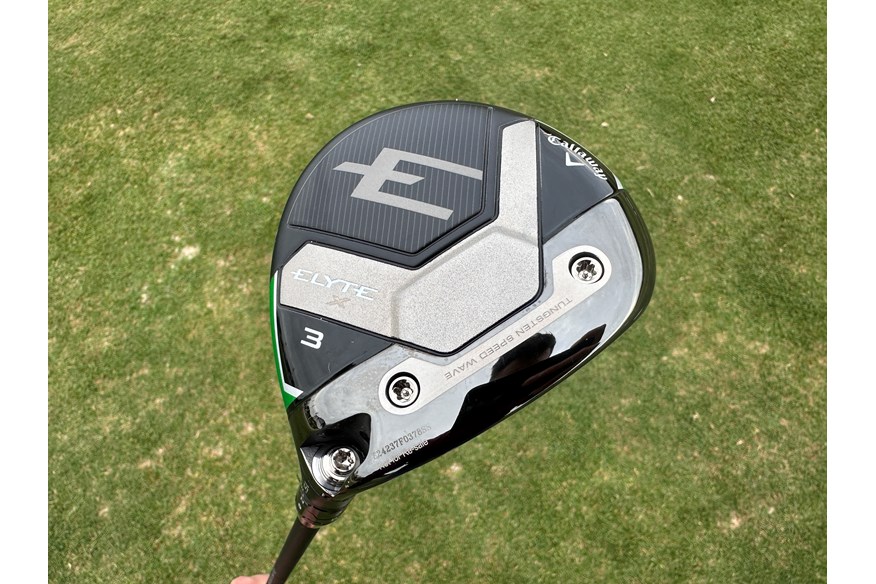

Say hello to your best-in-class fairway wood of 2025! This may turn a few heads, as the Callaway Elyte X is right at the top of Callaway’s fairway wood chain, offering the most forgiveness and launch. The profile is a lot different to their Elyte Triple Diamond model, which sits slightly more open than the Elyte X. The Elyte X produced a high draw ball flight. The new step sole and large profile down at address made this a great club to launch off the ground, but the ball speed was very high too. The Callaway Elyte X received the 2nd and 3rd highest ball speeds on individual shots hit, showing that despite the club being pushed towards forgiveness, it packs a punch too.
What our tester says:
What an absolute joy it was testing this club. I am a fan of the larger fairway woods at address, but with the Callaway Elyte X I found that across the face, I was still getting my desired ball flight of a baby draw, whilst keeping the ball speed at an acceptable level to not lose any true distance. This club would be perfect for me to hit off the tee, but due to the forgiveness in play, I think it would be perfect for any situation. It might not be the most workable fairway wood around, and that slight draw bias could put off some players who struggle with a hook, but for the general masses of golfers I’m going to struggle to recommend a fairway wood other than this.
Read our full Callaway Elyte Fairway Wood Family Review here
Pros
- Larger profile for increased confidence for the club golfer
- Fast ball speed and mid spin in a forgiving package.
- Premium turf interaction via new step sole.
Cons
- Slight draw bias may not be for everyone.
| Lofts | 3 (15º), 3HL (16.5º), 5 (18º), 7 (21º) |
| Stock shafts | True Temper Project X Denali Charcoal 60g (5.5-R, 6.0-S), 70g (6.0S, 6.5-X) Mitsubishi Chemical Vanquish PL 40G (R2), 50g (R2, R) <br>Women’s Mitsubishi Chemical Eldio 40g (L) |
| Stock grip | Golf Pride Tour Velvet 360 (50g). |
Low spin by design, not by nature
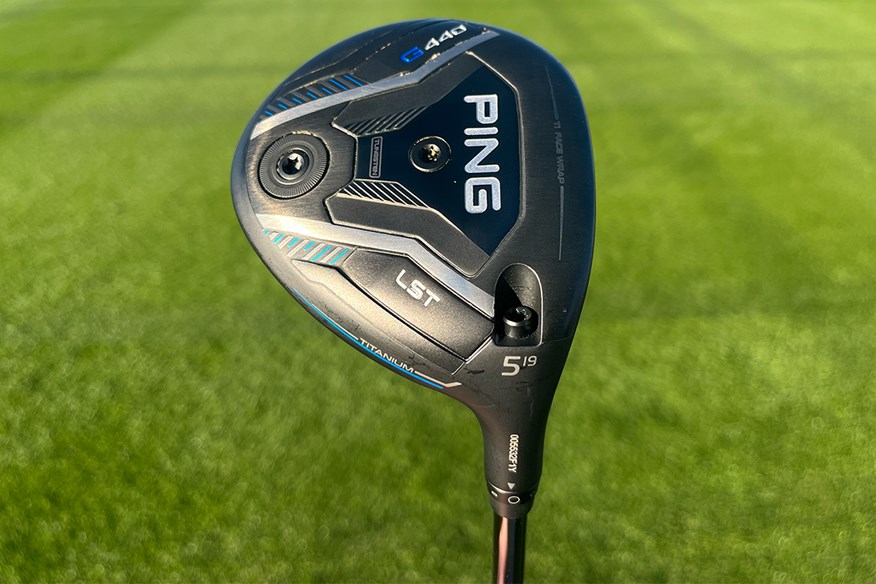

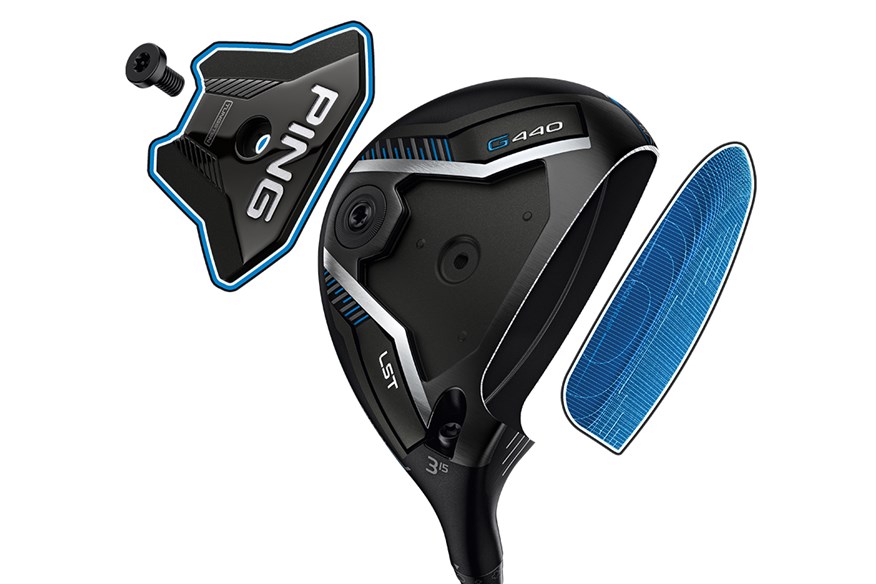
It is of no surprise that PING grabs a podium spot for best fairway woods, with the brand itself offering premium consistency for decades gone by. The LST may be a bit of an unorthodox result to some keen eyes, but don’t be fooled, this club revealed some incredible results for the PING family. Engineered for low spin and high launch, this club is pushed towards the higher speed players, which we do need to mention in case you are of the slower club head speed. Either way, the HST (High-Strength Titanium) face, Ti 8-1-1 body, tungsten sole plate, and Carbonfly Wrap crown combine to create an incredibly consistent club that provides a substantial amount of forgiveness for a low-spin model. Ranking at 4th for overall forgiveness and 3rd for overall height, the PING G440 LST is more than just a low-spinning fairway wood. It’s the whole package.
What our tester says:
I’ve never been one to bag a PING metalwood for various reasons, but the PING G440 LST caught my eye before I even saw the data. The ball flight was right in the window that would be perfect for my game, and with the CG positioned optimally, I could see that the descent angle would be good when going for par 5’s in two. For an LST, it felt effortless to hit, which you can’t really say about other brands. I’m not the biggest fan of the feel, but that’s my personal preference.
Read our full PING G440 Fairway Wood Family Review Here
Pros
- Increased speed and height for a low-spinning head.
- Unrivalled consistency across data metrics.
- A very forgiving fairway wood option.
Cons
- If you use more than one fairway wood this is very costly.
| Lofts | 3W-15º; 5W-19º |
| Stock shafts | Ping Alta CB Blue 65 (SR, R, S) Ping Tour 2.0 Chrome/Black 65/70 (R, S, X) |
| Stock grip | Golf Pride Tour Velvet 360 |
Effortless performance from a premium head design
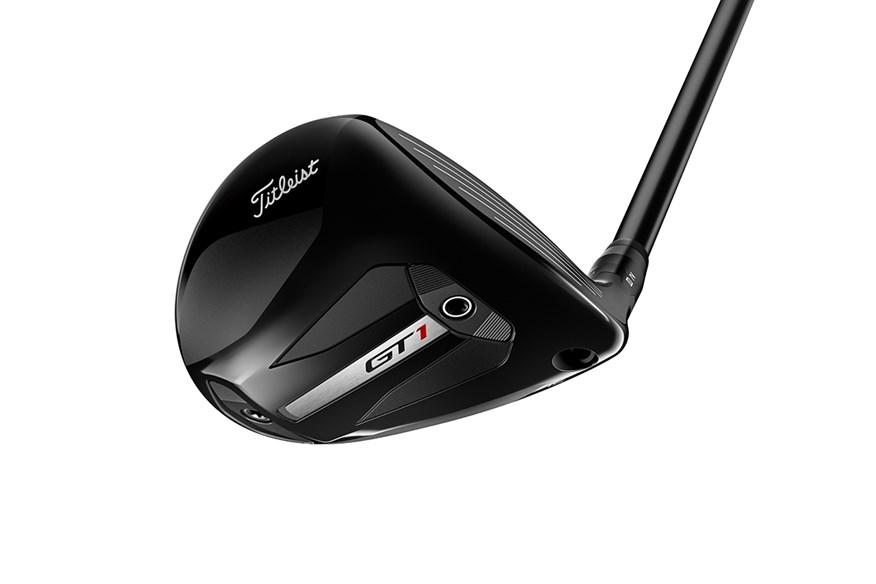

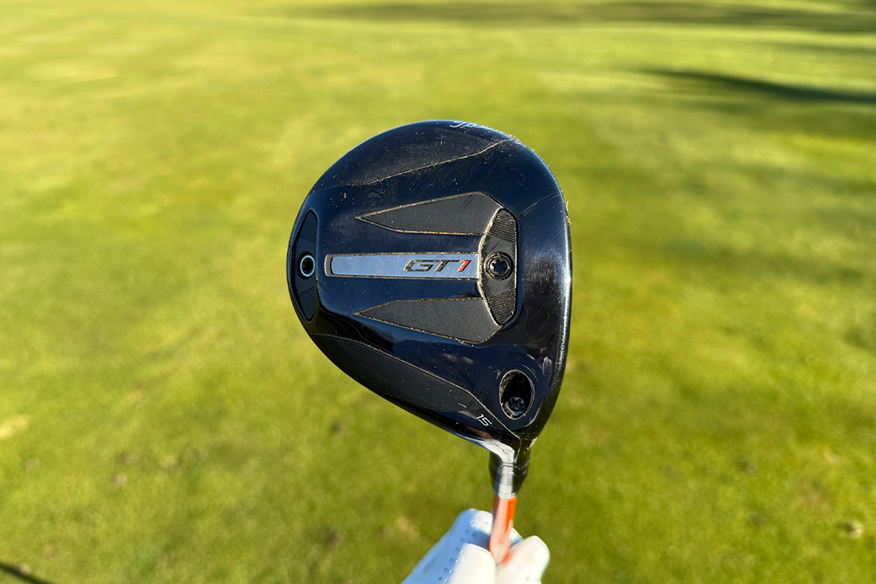
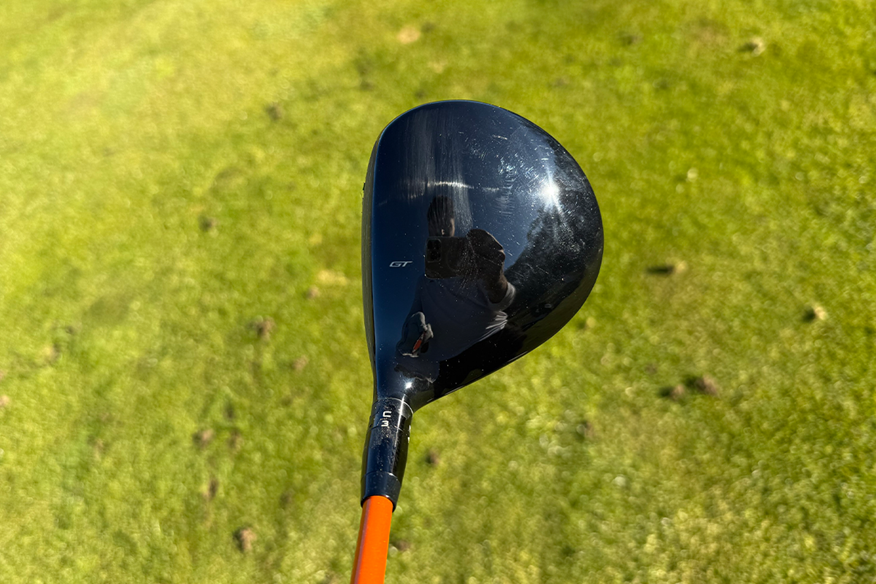
It was great to watch our testing pro Neil swing the lightweight GT1 fairway wood at Keele Golf Centre. Featuring similar revolutionary technology to the GT2&3 but with a lightweight construction to assist in launch without drastically increasing spin, the Titleist GT1 fairway wood comes with a very inviting playing profile that would suit any golfer. The SureFit hosel remains in the GT1, and there is also adjustable weighting to change the CG location if you wanted to alter the launch characteristics. It must be said, the spin on this model is on the higher side. Is that a negative? It depends on what you’re wanting out of a fairway wood, but it certainly didn’t rank highly for distance. However, for forgiveness, height, and overall, it was in the top 3. We preferred to put the heavier weight at the back for maximum forgiveness, as we didn’t see a significant increase in performance when we moved it to the front, but we’d recommend you try for yourself and see which option works best for you.
What our tester says:
The Titleist GT1 was my favorite club for my eye down at address. To combine the sleek elegance that the Titleist brand represents with a larger, more inviting playing profile meant I had true confidence when attempting to hit shots from a variety of different situations. I’m going to struggle to think of a club that I’ve hit in recent times that’s more forgiving than this. The spin is too high for me to put it in the bag, so maybe it’s suited to someone with a slightly slower swing speed than mine, but If I had more time with it to play around with the settings, I know I could make it work for me. If I had the Titleist GT1 in a 7-wood, I think it would be the easiest club to hit ever!
Read our full Titleist GT1 Family Review Here
Pros
- Feels impossible to actually hit this badly.
- Great blend of aesthetics and performance.
Cons
- The design of the product will mean some players of faster swing speed may struggle to keep the spin down.
| Lofts | 3 – 15° / 5 – 18° / 7 – 21° / 9 - 24° |
| Stock shafts | Fujikura Air Speeder Next Gen 40g (Men’s – R2, R, S), Fujikura Air Speeder Next Gen 35g (Ladies, Juniors) |
| Stock grip | Golf Pride TV 360 Lite Plus Dark Gray Flat Cap |
Best Fairway Woods For Distance:
Topping the podium places once again
The Callaway Elyte X tops another list for the Today’s Golfer rankings, and this time it’s best for overall distance. Two very impressive 1st place finishes for this model, with our testing pro Neil begging us to let him keep it after our session. It’s no surprise that Callaway have featured highly, with the core model of the Elyte range also gaining a podium spot in the distance category. The new step sole allows the clubhead speed to really push the boundaries, with Neil presenting high ball speed numbers with all the shots he hit. The Callaway Elyte Triple Diamond would have been the model touted as being the longest from the Callaway family on paper, however we found that the smaller profile and less forgiving head overall lead to it falling down the pack in the rankings.
What our tester says:
I never expected this specific model to perform as strongly as it did for ball speed and overall distance. Sure, it felt hot off the face and has that signature Callaway attitude to it, but I would have thought that I would have delivered too high spin for it to top the rankings. I think by having that slight draw bias in it, it allowed me to deliver the club in a way that would generate high launch and low spin, which we all know is perfect for a fairway wood. I think I could have even got a little bit more ball speed out of it if I tried, which is very exciting.
You can read our review of the Callaway Elyte X Fairway Wood Here
Pros
- Easy to launch high from the deck.
- Forgiveness and speed in a larger profile.
Cons
- Limited adjustability.
| Lofts | 3 (15º), 3HL (16.5º), 5 (18º), 7 (21º) |
| Stock shafts | True Temper Project X Denali Charcoal 60g (5.5-R, 6.0-S), 70g (6.0S, 6.5-X) Mitsubishi Chemical Vanquish PL 40G (R2), 50g (R2, R) <br>Women’s Mitsubishi Chemical Eldio 40g (L) |
| Stock grip | Golf Pride Tour Velvet 360 |
A fantastic-looking flagship model for a the established player
The Titleist GT2 felt like a bit of a secret weapon during our testing. From a profile perspective, it sits extremely close to the Titleist GT3, with our testing pro Neil barely being able to tell them apart. During testing, we saw the GT2 exhibit extremely high ball speeds, with 60% of the total shots in the top 10% of ball speed recordings. What let it down from claiming that top spot was the deviation between all the total shots, and forgiveness. We’d push the Titleist GT2 towards the more established player when comparing it to other models on the podium.
What our tester says:
The Titleist GT family has the best feel out of all brands for fairway woods, with the Titleist GT2 really impressing me for overall performance. It sat right in the middle between the GT1 and GT3, but I was pleased that I could see the spin being kept down on my optimal shots. I was slightly disappointed with my dispersion, so from a personal point of view I’d likely still go for the GT1, but with some fine-tuning I’d think the GT2 could firmly hold a place in my bag.
Read our full Titleist GT2 Fairway Wood Review Here.
Pros
- Forgiveness, sound, and feel are very good.
- Amazing stock shaft options.
- Adjustability for a fairway wood is fantastic.
Cons
- Full black head which can pose a challenge when lining up with the center of the clubface.
| Lofts | 13.5º / 15º / 16.5° / 18° / 21° (RH/LH) |
| Stock shafts | Project X Denali Red / Mitsubishi Tensei 1K Blue / Project X HZRDUS Black 5th Gen / Mitsubishi Tensei 1K Black |
| Stock grip | Titleist Universal 360 Grip |
A super playable fairway wood destined for great success in 2025
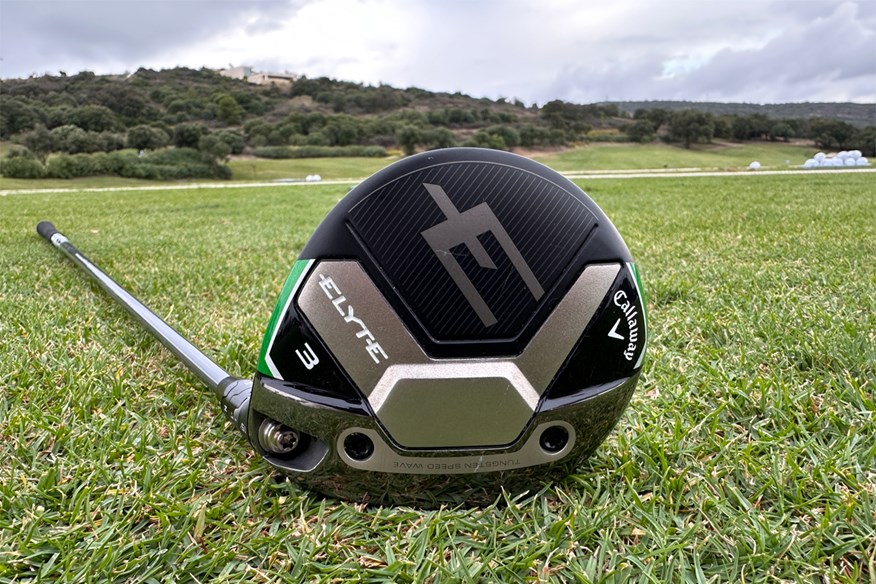

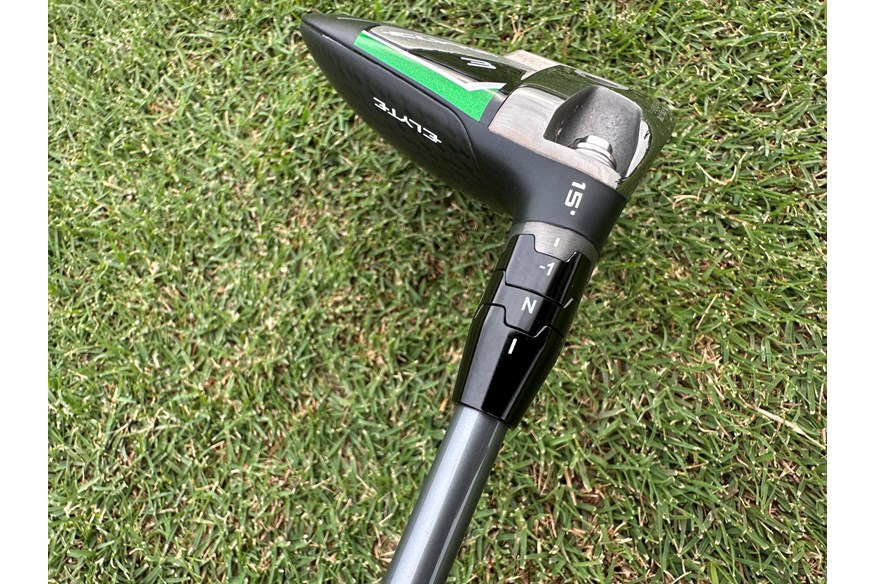
A debut for the core model of the Callaway Elyte family in our rankings, with the results showing consistent data across the board for the fairway wood that will likely be the most popular from Callaway’s line-up. The Callaway Elyte recorded the fastest individual ball speed of our testing, which we were not surprised by due to the CG optimization via the new Tungsten Speed Wave – 35g of floating Tungsten positioned low and forwards in the head, but without placing any constraint on face flex.
What our tester says:
I got on with the entire Callaway Elyte family as a whole, so I’m not shocked to see the core model feature in the top 3 for distance. This model actually felt hotter off the face than the Callaway Elyte X, which I imagine was down to the CG location. In all honesty, I don’t think any golfer would go wrong with the Callaway Elyte X or core model for 2025. They’re pretty special.
Read our full Callaway Elyte Fairway Wood Review Here
Pros
- A great all around performer in all data categories.
- A significant improvement to previous generations gone by from Callaway.
Cons
- Would like more adjustability in the higher lofts.
| Lofts | 3 (15º, RH/LH), 3HL (16.5º, RH), 5 (18º, RH/LH), 7 (21º, RH/LH), HVNWD (20º, RH), 9 (24º, RH), 11 (27º, RH) |
| Stock shafts | True Temper Project X Denali Charcoal 60g (5.5-R, 6.0-S), 70g (6.0S, 6.5-X); Mitsubishi Chemical Vanquish PL 40G (R2), 50g (R2, R) |
| Stock grip | Golf Pride Tour Velvet 360 (50g) |
Best Fairway Woods For Height 2025
The perfect weapon to reach those par 5's in two
The lightweight Titleist GT1 takes the top spot for our height rankings, meaning this would be the ideal weapon for attacking a par 5 in two and making your approach shot stop on the green. Positioning the heavy weight at the back pushed the CG back with it, allowing for high launch on a lightweight head – a crafty combo if you’re looking for a high-launching fairway wood to help you improve your game, and something we’d recommend. Not only is the GT1 optimal for launch, but with the CG positioning and overall playing profile, it’s very easy on mishits too. Perhaps not for the Kyle Berkshire’s of this world, but for the amateur golfer, you really can’t go wrong with this model.
What our tester says:
The Titleist GT1 was a pleasure to test and felt like a bit of a cheat code. I didn’t really have to think when hitting it, which is something a lot of everyday golfers yearn to do. I simply set up to the ball and swing, and saw the ball sail to the moon. Yes, it was likely too high of an apex with my swing speed, especially with the weight at the back. But an enjoyable experience? Absolutely.
Read our full Titleist GT1 Family Review Here
Pros
- Really competitive levels of ball speed and carry distance.
- Easy to launch from multiple lies.
- Pleasing looking at address.
Cons
- No adjustable hosel.
| Lofts | 3W - 15° / 5W - 18° / 7W - 21° / 9W - 24° |
| Stock shafts | Fujikura Air Speeder Next Gen 40g (Men’s – R2, R, S), Fujikura Air Speeder Next Gen 35g (Ladies, Juniors) |
| Stock grip | Golf Pride TV 360 Lite Plus Dark Gray Flat Cap |
A top performer for amateur golfers
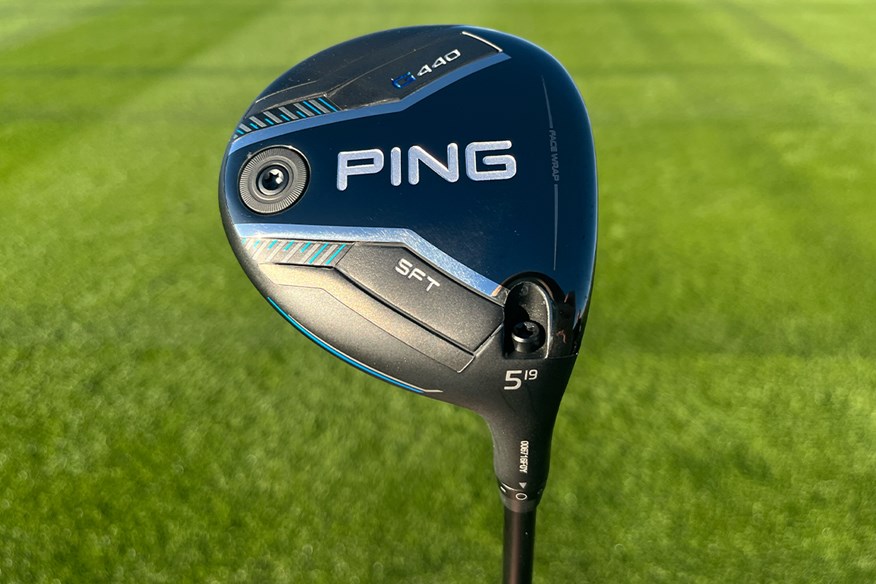

The PING G440 SFT fairway features Straight Flight Technology, to assist golfers in those unwarranted fades and slices. The larger profile and heel-side CG leads to a very high ball flight, and a forgiving club for any type of golfer. Of course, this fairway wood might not be for everyone due to the slight draw bias it beholds, so we’d recommend looking at the G440 MAX if you don’t need help eliminating the slice. As you would expect with this model, the height is coupled with impressive forgiveness across the face, which we always seem to get with any PING model.
What our tester says:
Having a slightly out-to-in swing path, my shot shape does differ from time to time, but I prefer a neutral ball flight with my fairway wood, as It’s predominantly what I use to put myself in a good position off the tee. Sometimes, my miss is right with a bit too much cut spin. The PING G440 SFT made that next to impossible with my swing, which allowed me to swing freely and faster than usual. I’m still not the biggest fan of the acoustics of the new PING range, with other brands such as Callaway and TaylorMade breezing past them in this regard.
Read our full PING G440 SFT Fairway Woods Review Here
Pros
- Produced our 2nd fastest ball speed and distance on test.
- Very powerful.
- Confidence-inspiring at address.
Cons
- No adjustability on offer.
| Lofts | 3W-15º, 5W-19º, 7W-22º |
| Stock shafts | Ping Alta CB Blue 65 (SR, R, S), Ping Tour 2.0 Chrome/Black 65/70 (R, S, X) |
| Stock grip | Golf Pride 360 Tour Velvet |
Premium adjustability in a modern profile
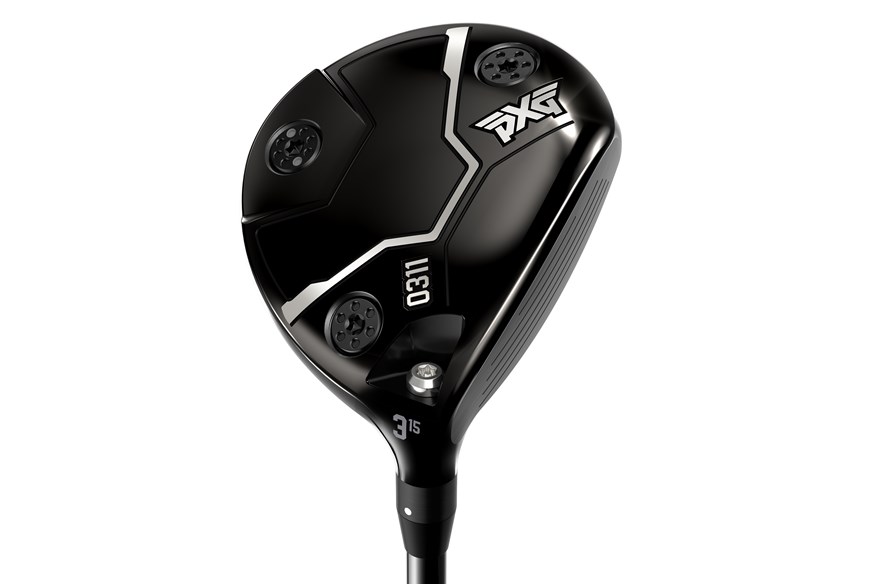

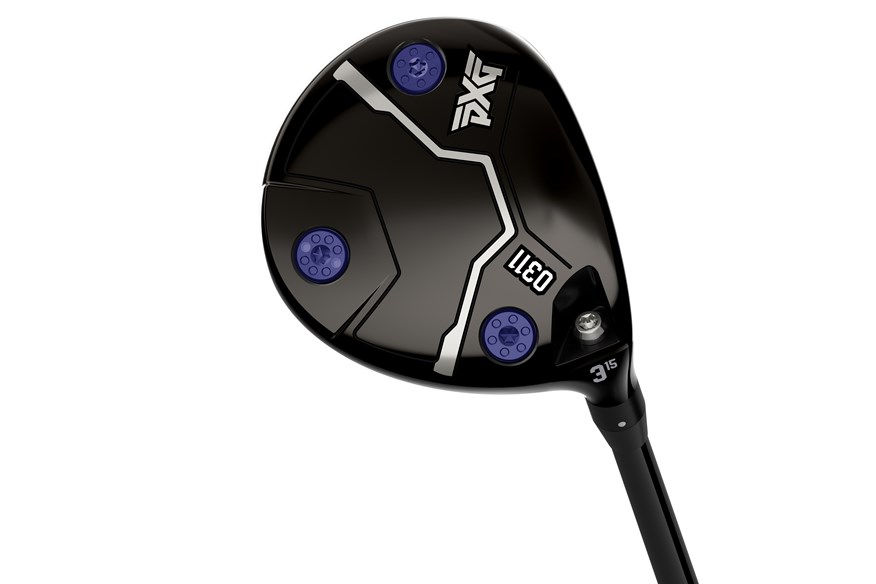
Featuring a low profile and flat sole, the PXG Black Ops fairway woods offer versatility through its high MOI design and impressive adjustability. What really impressed us is the ability to fit this club to more-or-less any golfer, by the changeable weighting on the sole. You can move the weight and CG for ball flight, for launch and forgiveness, or shot shape. We saw the best results with the weight at the back for height, with impressive forgiveness to match. PXG are not known for producing the fastest metalwoods in golf, and the Black Ops range did not rank highly for distance, so keep that in mind if you’re looking for an all-around package.
What out tester says:
I was a big fan of the PXG Black Ops fairway wood before hitting, as I found the profile of the club to be rather large but also quite shallow, meaning I would have no trouble launching it into the air. The feel was quite similar to PING which took a while to get used to, but the results were very impressive when changing the weights around to suit my swing.
Read our full PXG Black Ops Fairway Wood Review Here
Pros
- Exceptional adjustability.
- Striking aesthetics.
Cons
- Other fairway woods offer more in their indidivudal categories.
| Lofts | <strong> </strong>3W - 15° / 4W - 17° / 5W - 18° / 7W - 21°<br> |
| Stock shafts | EvenFlow Riptide CB, PX Cypher, MCA Diamana S+, ProjectX HZRDUS Smoke Yellow, MCA Tensei AV Raw Blue, MCA Tensei AV Raw White, Aldila NVS Pink NXT |
| Stock grip | PXG Z5 Black |
Best Fairway Woods For Forgiveness 2025
Forgiveness and more
Best for maximum forgiveness


In recent years, super-forgiving fairway woods have gained significant attention as golfers increasingly prioritize golf clubs that enhance their game rather than chasing those extra few yards. In 2025, the term MOI is now common for every brand to reference regarding forgiveness, and the number 1 model for this is no different. For golfers seeking optimal forgiveness and playability in a fairway wood, the PING G440 SFT comes as a full package, which is why it’s hit our top spot.
Similar to other high forgiveness brands in 2025, this large profile model has been created to be easy to use, for any golfer. The profile is wide, and low to the ground, with the SFT meaning the everyday golfer will be able to hit this high, straight, and with no slice. This model easily ranked 1st in left-to-right dispersion, whilst hitting the podium places for height but near the bottom of the pack for clubhead speed. The spin is on the higher side, but that’s not a problem with a forgiving head.
What our tester says:
The consistency that I received from the PING G440 SFT was remarkable. My dispersion simply shouldn’t be that tight with a 3-wood, this felt like I was hitting a 7-iron with the results shown. I’m very fond of the profile down at address and wouldn’t struggle to recommend this to a variety of golfers.
Read our full PING G440 Fairway Woods Review Here
Pros
- Larger profile for the players who aren't as confident with hitting. afiarway wood from a variety of lies.
- SFT to optimize the ball flight from a slice.
Cons
- Feel could be improved.
| Lofts | 3W-15º, 5W-19º, 7W-22º |
| Stock shafts | Ping Alta CB Blue 65 (SR, R, S), Ping Tour 2.0 Chrome/Black 65/70 (R, S, X) |
| Stock grip | Golf Pride 360 Tour Velvet |
A forgiveness machine




What our tester says:
Despite the PING topping the charts due to its superior left-to-right dispersion, I still found myself being drawn to the Titleist GT1 due to how easy it is to hit. It’s not the longest club in the world, but I’m not too concerned with that. To be able to hit a club 250 on repeat and straight is not easy, but I can do that without any issues here.
Read our full Titleist GT1 Family Review Here
Pros
- Exceptional performance across the entire face.
- Confidence inspiring playing profile.
Cons
- Ball speed and carry did not perform well.
| Lofts | 3W-15º, 5W-18º, 7W-21º, 9W-24º |
| Stock shafts | Fujikura Air Speeder Next Gen 40g (Men’s – R2, R, S), Fujikura Air Speeder Next Gen 35g (Ladies, Juniors) |
| Stock grip | Golf Pride TV 360 Lite Plus Dark Gray Flat Cap |
Modern profile for the amateur golfer
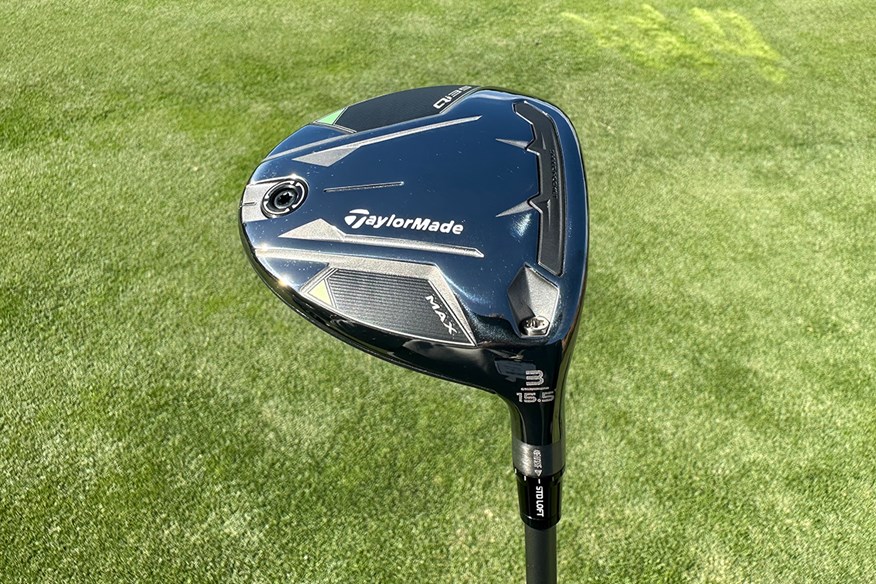

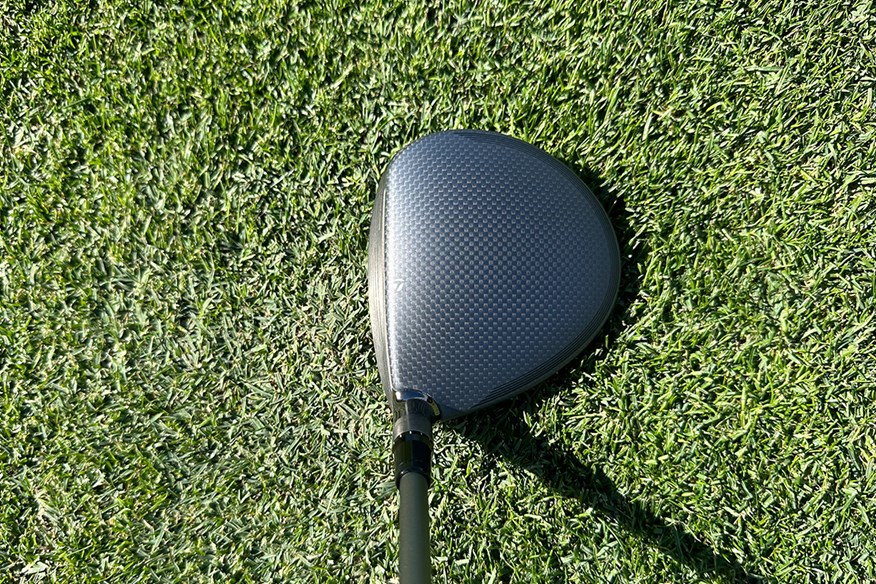
TaylorMade enter the mix with their TaylorMade Qi35 Max model, offering a larger profile to the masses of golfers who need a bit of help launching it off the ground. You will notice that the HD family has continued to be non-existent in 2025 with TaylorMade, with the Max essentially replacing this line, albeit without the draw bias/slice designation. This club, like other forgiveness models (bar the Callaway Elyte X) is not built for speed, and this showed in our testing, with the TaylorMade Qi35 ranking well for clubhead speed but not ball speed. The left-to-right dispersion was just shy of the PING G440 SFT, showing that this club has a place in any golfer’s bag who’s looking for consistency in finding fairways.
What our tester says:
Despite being 3rd on the list for max forgiveness, I’d look to recommend the TaylorMade Qi35 Max to the higher handicappers due to the profile down at address. It sits extremely square and close to the ground, making it look impossible to top or thin. I’m not the biggest fan of the alignment on the back of the crown, but I would think this would be a helpful element for high handicappers, hence my recommendation.
Read our full review on the TaylorMade Qi35 Max Fairway Wood Here
Pros
- Larger profile with modern alignment system to encourage the amateur golfer.
- Fast, forgiving and premium feel.
Cons
- Although club head speed was premium, we didn't see positive ball speed results.
| Lofts | <strong> </strong>3-15.5º / 5-18.5° / 7-21.5° (RH/LH), 9-24.5º (RH Only) |
| Stock shafts | Fujikura Air Speeder 50g |
| Stock grips | Golf Pride Z-Grip Black/Silver |
Best Fairway Woods For Low Launch 2025
Low-launching weapon with impressive distance
Wilson enter the podium places in 2025 for best fairway woods with their Wilson Dynapower Carbon model. It must be said, Wilson as a whole did rank very positively in our testing for fairway woods but just missed out on the podium spots in several categories. If you’re looking for a low-launching fairway wood to place you in the fairway on a links course, look no further than Wilson’s 2025 offering. Due to the low launch and low spin results seen in testing, coupled with acceptable ball speed, we saw this model rank 2nd for overall carry. With the low launch/spin, this is most certainly a useful asset for the golfers needing to flight it low. That being said, we did not find this a forgiving fairway wood, with the Wilson Dynapower Carbon ranking last in left-to-right dispersion, so be warned!
What our tester says:
The Wilson Dynapower Carbon is an absolute rocket for the low-handicap player. I certainly struggled to keep the consistency up with dispersion, but I was pleasantly surprised that I kept my distance up. The profile does seem tour-driven, so I will stand firm on recommending it to the better player.
Read our full review on the Wilson Dynapower Carbon Fairway Wood Here
Pros
- Perfect for links golf
- Premium playing profile
Cons
- Forgiveness was not as good as other models
| Lofts | 3+ (13.5º) / 3 (15º) / 4 (16.5°) / 5 (18º) / 7 (21º) |
| Stock shafts | Fujikura Ventus TR Blue |
| Stock grips | Lamkin Crossline 360 Black |
A custom-fitting dream
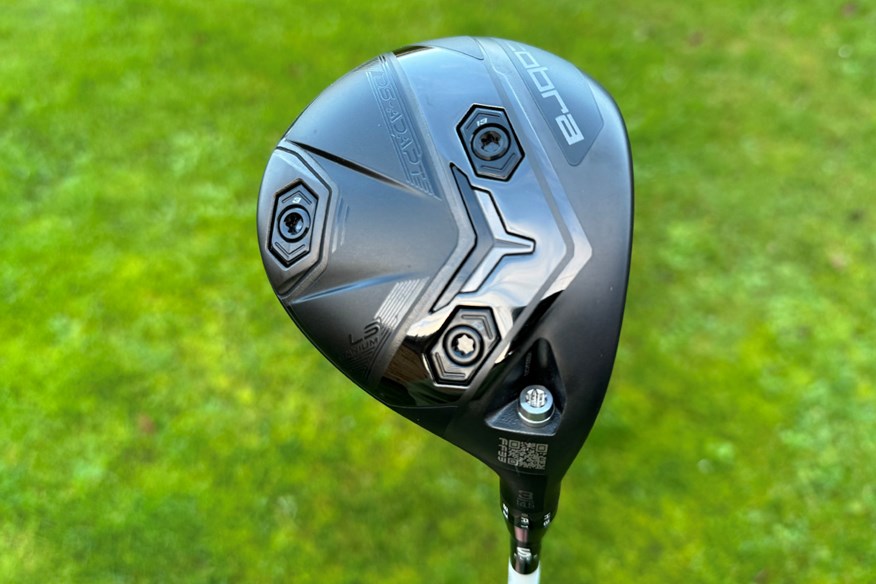

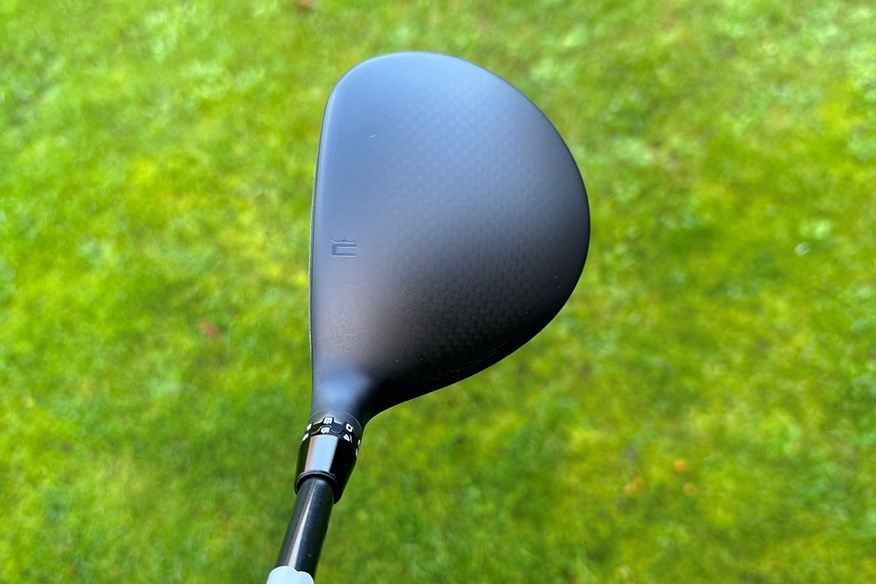
The Cobra DS-Adapt LS is another low-launching, low-spinning fairway wood that will suit the golfer who needs to flight their golf ball in 2025. The FutureFit33 technology makes this fairway wood the most adjustable in the rankings, showcasing the evolution of Cobra in recent years. We were pleased to see that although the clubhead speed and ball speed were rather lacklustre in testing, the left-to-right dispersion was at an acceptable level for a tour-shaped LS model. The FutureFit33 hosel means that you could tinker with the loft to suit your swing and course needs. However, we’d always recommend you get fitted to know what would work for your game.
What our tester says:
I’ve always found Cobra metalwoods in general to be a bit of a rocket, especially the LS. Although this wouldn’t see a place in my bag due to the profile and the feel off the face, I can see a place for it in golfers who want premium adjustability and low launch in a compact profile.
Read our full review on the Cobra DS-ADAPT LS Fairway Wood Here
Pros
- FutureFit33 hosel technology most advanced custom fitting tech in golf
- Impressive forgivness for a low spin model
Cons
- Ball speed lacking
- Feel is not as premium as other brands
| Lofts | 3w (14.5), 3HF (16) and 5W (17.5) |
| Stock shafts | True Temper Denali Black 60 shaft (X, S) |
| Stock grips | Lamkin Crossline |
Tour-shaped speed
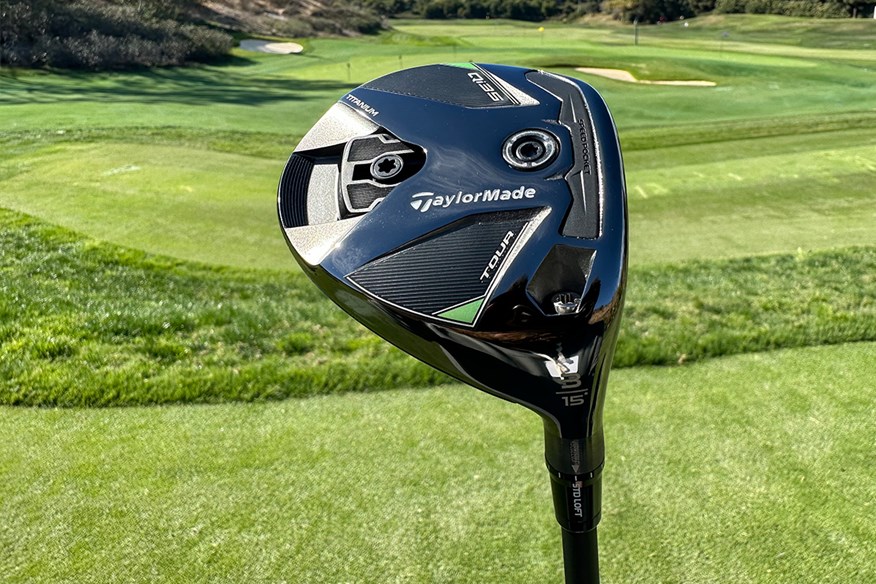

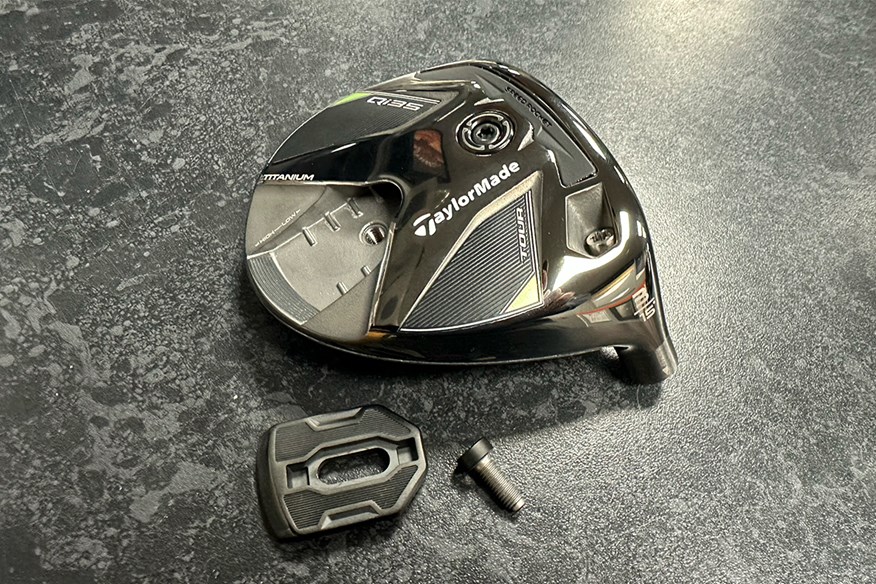
As used by Tiger Woods, the TaylorMade Qi35 features a 50g moveable weight to alter the CG and dial in launch and spin. With the weight forward, we noticed the numbers for all metrics were extremely consistent. The profile is pushing towards the lower handicap player, and we saw this with the left-to-right dispersion rank fairly poorly. With impressive ball speed and carry, the TaylorMade Qi35 Tour will suit the accomplished golfer looking for a compact, premium profile, and maximum adjustability.
What our tester says:
The TaylorMade Qi35 Tour did suit my eye due to overall shaping, despite it being one of the more compact models in testing. I was able to push my ball speed on certain shots, although I did see a bit of a drop-off on mishits, which is expected when we pushed the weight to the front to lower the launch.
Read our full review on the TaylorMade Qi35 Tour Fairway Wood Here
Pros
- Compact, premium playing profile.
- Impressive adjutability for the better player
Cons
- Most golfers would be suited towards a larger profile down at address
- On the expensive side
| Lofts | 3-15º / 5-18° (RH/LH), 7-21° (RH Only) |
| Stock shafts | <strong> </strong>Mitsubishi Kai'Li Blue DarkWave 75g / 65g |
| Stock grips | Golf Pride Z-Grip Black/Silver |
Best Fairway Woods: The Data
Below is the data from our independent testing of the best fairway woods available in 2025. You can read about all the other models that didn’t make our shortlist above in our golf club review pages.
| Make | Model | Ball Speed (mph) | Carry Distance (yds) | Spin Rate (rpm) | Launch Angle (°) | Peak Height (yds) | Descent Angle (°) | L-R Dispersion |
| Callaway | Elyte TD | 156.8 | 249.9 | 3780 | 11.2 | 35.7 | 44.1 | 24.4 |
| Callaway | Elyte Core | 156.8 | 260.5 | 3039 | 11.7 | 34.5 | 42.3 | 38.2 |
| Callaway | Elyte X | 157.4 | 264.9 | 2891 | 11.9 | 35.5 | 43.0 | 26.0 |
| Cobra | DS-Adapt (back) | 154.6 | 254.6 | 2866 | 10.4 | 29.0 | 39.4 | 41.0 |
| Cobra | DS-Adapt (forward) | 154.1 | 252.8 | 3026 | 10.2 | 29.3 | 39.4 | 20.1 |
| Cobra | DS-Adapt X | 156.3 | 253.4 | 3481 | 11.0 | 35.2 | 43.8 | 28.6 |
| Cobra | DS-Adapt Max | 155.4 | 242.1 | 4115 | 9.8 | 33.3 | 44.1 | 17.6 |
| Ping | G440 LST | 154.0 | 254.3 | 3190 | 12.3 | 35.9 | 43.3 | 23.3 |
| Ping | G440 Max | 157.1 | 252.8 | 3538 | 9.8 | 32.2 | 42.1 | 16.7 |
| Ping | G440 SFT | 155.7 | 250.5 | 3608 | 11.5 | 36.3 | 45.0 | 9.6 |
| PXG | Black Ops (back) | 152.4 | 242.2 | 3798 | 11.9 | 36.0 | 45.6 | 29.3 |
| PXG | Black Ops (forward) | 153.9 | 243.4 | 3906 | 11.2 | 35.7 | 44.9 | 22.4 |
| Srixon | ZXi | 154.9 | 254.3 | 3141 | 10.8 | 32.5 | 41.9 | 26.6 |
| TaylorMade | Qi35 Tour (forward) | 155.7 | 252.0 | 3462 | 11.1 | 34.8 | 44.0 | 37.8 |
| TaylorMade | Qi35 Tour (back) | 156.2 | 255.4 | 3332 | 11.9 | 36.3 | 45.1 | 19.9 |
| TaylorMade | Qi35 Core | 153.2 | 253.9 | 2893 | 11.0 | 30.9 | 40.7 | 29.9 |
| TaylorMade | Qi35 Max | 153.5 | 240.0 | 4137 | 11.1 | 36.1 | 45.4 | 9.9 |
| Titleist | GT1 (back) | 151.7 | 240.0 | 3917 | 12.3 | 37.4 | 45.9 | 17.6 |
| Titleist | GT3 | 155.1 | 251.7 | 3346 | 10.6 | 32.5 | 42.2 | 13.4 |
| Titleist | GT2 | 157.1 | 255.9 | 3311 | 10.6 | 33.1 | 42.2 | 37.0 |
| Titleist | GT1 (forward) | 153.3 | 247.0 | 3492 | 11.4 | 34.4 | 43.8 | 22.4 |
| Wilson | Dynapower Carbon | 155.6 | 261.7 | 2574 | 10.8 | 29.3 | 38.3 | 52.4 |
| Wilson | Dynapower Max | 153.1 | 247.6 | 3428 | 11.5 | 34.2 | 43.8 | 30.0 |
What our data means
There’s a lot of different data metrics that we have released this year with our testing, so we’ve provided explanations for the key metrics you’ll be focusing on:
- Clubhead Speed: The speed of the clubhead at impact, measured in miles per hour.
- Ball Speed: The speed at which the ball leaves the clubface at impact, measured in miles per hour.
- Carry Distance: The distance the ball travels through the air before landing, measured in yards.
- Total Distance: The combined distance the ball travels through the air and with the predicted roll-out, measured in yards.
- Spin: The number of full rotations the ball completes per minute, measured in rotations per minute.
- Launch Angle: The angle at which the ball leaves the clubface relative to the ground, measured in degrees.
Best Fairway Woods: Buying Guide
Choosing the right fairway wood is definitely a daunting task, with many different options to choose from a multitude of brands. It can be very easy to become confused with the array of products on display to you and end up not knowing what you actually want. From loft, to brand, to the overall aesthetics: if you’re new to the game, it’ll be tough to make the right choice. Here’s our step-by-step guide below to help you find the best fairway wood and improve your game.
1. Understand the Key Features of Fairway Woods
Before diving into the specifics of fairway woods, it’s important to understand the main categories that will factor into your choice:
- Loft: The loft is the angle of the clubface which is the key to determining the overall characteristics of your shot. The loft can dictate the launch, spin, descent angle, and much more. There are other elements in play, but this is the main deciding point. The lower lofted fairway woods usually deliver the least launch, lowest forgiveness, and versatility. The higher lofted fairway woods (up to an 11-wood) will offer more versatility, launch, and spin, but less distance.
- Clubhead Design: The size and shape of the clubhead can now provide a big difference in the overall characteristics of the club. The more compact, tour-shaped fairway woods such as the TaylorMade Qi35 Tour offer a more penetrating ball flight with less versatility and forgiveness. Compare this to the TaylorMade Qi35 MAX, which is a lot larger of a profile. This offers more launch, more forgiveness, and can be used by a lot more golfers. If in doubt, go for the model that will help your game rather than hinder it!
2. Determine the Right Loft for Your Game
The loft of the fairway wood will play a major role in your game, and the right choice depends on what shots you are attempting to hit with this club.
- 3-Wood (15° Loft): Ideal for players seeking maximum distance from the fairway or tee. It can be used for long par-4s or off the tee when you need a more controlled shot compared to a driver. This won’t be as versatile as other fairway woods, but if it is correctly fitted for you, you will still be encouraged to use it in a variety of situations on the golf course.
- 5-Wood (18° Loft): An adaptable club for players who want a balance of distance and control. It’s very suitable for off the tee, despite not gaining as much distance as the 3 wood, but will offer more forgiveness for the player who perhaps isn’t as confident off the tee than they’d like. A well-respected ‘in-between’ club for the golfer who doesn’t want a 3-wood or 7-wood.
- 7-Wood (21° Loft): A club that has become very popular on tour over the last few years due to the ability to hit high-launch low-spin shots for par 5’s. Loft is your friend, so if you’re someone who struggles getting fairway woods airborne due to a slow swing speed or a poor strike location, a 7 wood will make this troublesome task seem a lot easier. Just make sure there’s a solid place for it in your bag at the courses you play.
4. Forgiveness and Playability
Forgiveness refers to how well the club performs on off-center hits, something many golfers (myself included) do round-to-round. Some key factors contributing to forgiveness include:
- Larger Clubhead: A bigger head with a more significant sweet spot will make it easier to hit the ball straight, even on mishits due to the larger sweetspot available, higher MOI and an easier profile.
- Face Technology: Many modern fairway woods feature advanced face technologies like variable face thickness and “sweet spot” zones to boost forgiveness and ball speed. Make sure to dive deep into these to see what brand could benefit you the most with your pesky mishit.
- Weight Distribution: Some models have adjustable weight features to optimize forgiveness and ball flight. Clubs with perimeter weighting can help keep shots straight even if the contact is off-center due to the lack of twisting from the hig MOI. Some fairway woods have significant adjustable weighting from the front to the back, moving the CG to a different location and thus impacting the launch/spin and overall forgiveness. Make sure when testing a fairway wood out that you test all of these elements to see what fits your game.
5. Adjustability
Many fairway woods now offer various ways of adjustability, allowing you to tweak loft, lie angle, face angle, and CG location for a custom fit. This can help you dial in your game and optimize the club for your swing:
- Adjustable Loft: You can change the loft to alter the trajectory of your shots. If you need more height or distance, an adjustable loft will let you find your ideal setting. The amount that you can do this does change brand-to-brand, with Callaway offering less adjustability through their fairway woods, but having an extensive setting range for the ones they do include. Keep in mind, when adjusting the loft, you also usually impact the lie angle for the club too, so you could see a change in overall ball flight. Cobra’s new DS-ADAPT metalwood range offers the most superior custom fitting options with the FuturFit33 hosel system, which allows you to tinker with 33 different loft and lie settings. One to consider if you’re someone who likes to test.
- Adjustable Weights: A lot of fairway woods now come with movable weights that allow you to shift the club’s center of gravity, which can improve your shot shape or forgiveness. Moving the center of gravity back allows the club to launch easier and increases the MOI of the head, meaning it will twist less on off-center strikes. If you’re someone who plays a lot of golf and is worried that they might grow out of their clubs, we’d recommend looking into a fairway wood model that has adjustable weighting, so as you improve, you’re able to change some of the settings of your club to suit your game.
6. Get Custom fitted
Buying off the shelf should be in the past, and fairway woods are no exception. You’re likely leaving yards and consistency on the table if you haven’t seen an experiential fitter to find out what works best for you. If you’re using the wrong shaft/lie combo, you could be using a golf club that is actually hindering your game rather than helping it. An incorrect shaft could lead to inconsistent striking and incorrect ball flight to your desired game. To truly see the tech on offer for us in 2025 from the OEM’s you will likely need to get fitted. Don’t waste your money by guessing!
7. Budget
If you’re just getting into the game, or feel like you could change your clubs over the next year or two, it might be best if you hold off on investing $400 or more on new golf clubs until you’re in a more confident position.
Golf has never been a cheap sport, but in 2025, we’re seeing the price of hardware continue to rise in the wrong direction. Fairway woods can now see you spend $400 for one product, which can be seen as eye-watering for one club that you might not use as frequently as others. The life cycle of golf clubs is now extending year on year, so if you decide to purchase a fairway wood, think of it as an investment over a 6-year or more period to improve your golf game.
Best Fairway Woods: FAQs
How do I know which fairway wood is right for me?
We tested many different models for 2025, and whilst one brand could be perfect for one golfer, it might not be right for you. The best way forward, as always, is for you to go out and test the models for yourself and see which one suits your game. You can use this as a guide for which ones you want to test, to narrow down your search radius. It would be the best practice to have an independent fitter assist you in this process.
What loft should I go for with a fairway wood?
Touring professionals to high handicappers all use different lofts for fairway woods, and whilst there are certain trends based on playing level, it all depends on your game. The higher lofted 7 woods are, by definition, easier to launch in the air, and easier to hit than a hybrid or long iron. A high ball flight and soft landing is ideal for reaching par 5’s in two, but not so optimal if you’re looking for a fairway finder. In any case, as mentioned already, it’s worth testing several loft combinations out, understand what you want from the club, and then making an informed decision with a PGA Professional present.
How much should I spend on a fairway wood?
There is no set amount that a consumer should spend on a fairway wood to see positive results. It all depends on what your budget is for this product, as you can dive into cheaper, second-hand models if necessary. A fairway wood can cost $400 in 2025, but with an aftermarket shaft + other custom fitting elements, we can see this going upwards of $600.
What is the longest fairway wood of 2025?
The Callaway Elyte X had the longest carry of all the models we tested for 2025, ranking 1st on our list for distance. This was through Neil Wain, our testing pro’s results. Although Neil is as close to a robot as we could find, different swing paths and impact positions could lead to other models being longer, so we’d always recommend testing for yourself.
What fairway wood Is the easiest to hit in 2025?
The PING G440 SFT ranked as the easiest to hit fairway wood In 2025, based on the data we received from our testing pro Neil. The Titleist GT1 and TaylorMade Qi35 Max followed shortly after in 2nd and 3rd position. These fairway woods are all in the same category of high MOI, large profile models that will help the amateur golfer launch the ball more optimally.
What fairway wood does Rory McIlroy play?
Like his driver, Rory McIlroy has not opted to upgrade to the newer TaylorMade Qi35 as of yet. Rory McIlroy games the TaylorMade Qi10 3 wood and 5 wood, but do expect him to switch at some point this year.
-
 Best Fairway woods 2025
Best Fairway woods 2025
-
 Best Fairway Woods 2024
Best Fairway Woods 2024
-
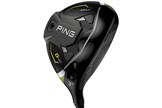 Ping G430 fairway wood.
Ping G430 fairway wood.
-
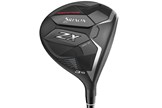 Srixon ZX MKII fairway wood.
Srixon ZX MKII fairway wood.
-
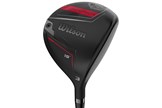 Wilson Dynapower fairway wood.
Wilson Dynapower fairway wood.
-
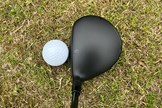 The address position of the Cobra Darkspeed Fairway Wood
The address position of the Cobra Darkspeed Fairway Wood
-
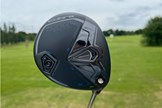 The sole of the Cobra Darkspeed Fairway Wood
The sole of the Cobra Darkspeed Fairway Wood
-
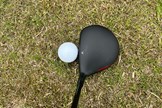 The address position of the Wilson Staff Dynapower Fairway Wood
The address position of the Wilson Staff Dynapower Fairway Wood
-
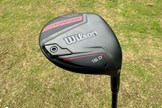 The sole of the Wilson Staff Dynapower Fairway Wood
The sole of the Wilson Staff Dynapower Fairway Wood
-
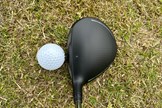 The address position of the Ping G430 Max Fairway Wood
The address position of the Ping G430 Max Fairway Wood
-
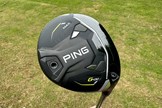 The sole of the Ping G430 Max Fairway Wood
The sole of the Ping G430 Max Fairway Wood
-
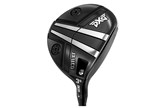 PXG 0311 XF GEN6 Fairway Wood.
PXG 0311 XF GEN6 Fairway Wood.
-
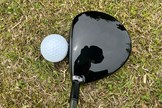 The address position of the Taylormade Qi10 Max Fairway Wood
The address position of the Taylormade Qi10 Max Fairway Wood
-
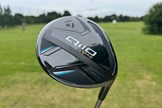 The sole of the Taylormade Qi10 Max Fairway Wood
The sole of the Taylormade Qi10 Max Fairway Wood
-
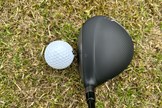 The address position of the Srixon ZX Mkii Fairway Wood
The address position of the Srixon ZX Mkii Fairway Wood
-
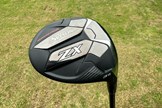 The sole of the Srixon ZX Mkii Fairway Wood
The sole of the Srixon ZX Mkii Fairway Wood
-
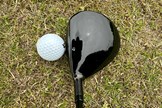 The address position of the Taylormade Qi10 Fairway Wood
The address position of the Taylormade Qi10 Fairway Wood
-
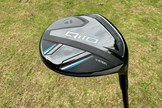 The sole of the Taylormade Qi10 Fairway Wood
The sole of the Taylormade Qi10 Fairway Wood
-
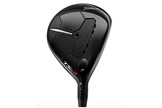 Titleist TSR3 Fairway Wood.
Titleist TSR3 Fairway Wood.


